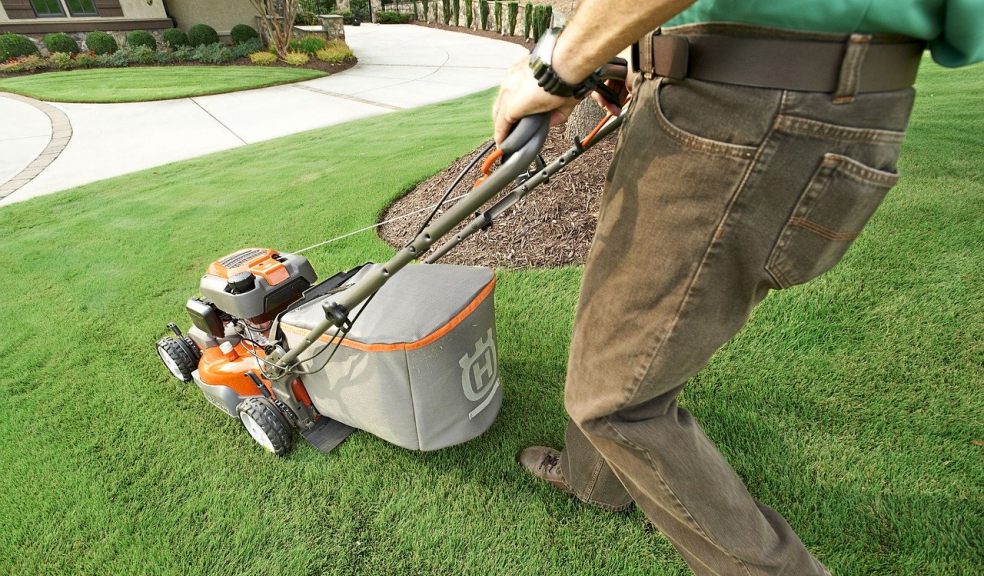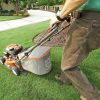
How to Take Care of Your Yard in Summer
The care your garden needs changes with each season and weather that it brings, a summer garden requires a lot more care than that of spring or autumn. Nevertheless, with the sun shining, tending to your garden is a much more enjoyable and easier task. Taking care of your yard in these summer months is time consuming, as most people use the space for having barbeques or gatherings, as a lot more time is spend in these areas. The best, easiest and quickest ways to take care of your garden in the summer are described below.
Tending to Your Summer Lawn
These summer months are some of your lawns peak growing times and so extra care is needed to ensure it is kept healthy and looks tidy. The tops tips for ensuring your lawns health are to ensure that you tend to your garden, mowing the lawn at least once a week, possibly two times depending on the rainfall in your area. It is also essential that your lawn mower has sharpened blades to experience the best results on your lawn. Experts suggest that the ideal length of your lawn is around 3 inches, this way it can retain enough light, water and will not get ruined if it is heavily used.
Cutting your grass any shorter can seriously stunt its growth in the long run as it is difficult for new grass to shoot, especially in these summer months. Once you have cut your lawn, raked or just generally tended to your garden a great way to fertilise the grass and soil is to use these clippings on your freshly cut grass. These can be removed either later that day or the following day, but the nutrients in these clippings really improve the look and overall health of your garden. To know in-depth about it, you may read the guides from toolsdiary
Summer Flower Beds
As most avid gardeners know, there are certain flowers which need to be potted in the summer months and those which can be bedded and endure the heat. The best flowers to bed in these months are Sweet Peas, Geraniums, Busy Lizzie’s and Begonia’s. These plants flower continuously throughout the summer months, right up to the autumn weather.
As these flowerbeds will be in constant sight due to the increased usage of your garden it is important to give them a tidy before bedding any new plants. Turn your soil to help your plants grow, remove any dead leaves or foliage collected from falling trees or bushes and ensure that all has been prepared for the new plants to be bedded.
Clean Up Your Patio Area
Over the winter months, your patio may have taken a beating from the ever-changing weather and lack of use. A great place to start rejuvenating it for summer is by using a pressure washer and cordless leaf blower to remove any moss, leaves, and dirt, leaving the patio looking as good as new. Once it’s clean, reassess whether you need new patio furniture or if there are other steps you can take to enhance your patio.
Sometimes, treating yourself to new furniture or fun additions for children can significantly improve your garden, transforming it into a social hub for the summer months. However, if your existing garden furniture is still in good condition, maintaining and refurbishing it is often more advantageous. Many DIY enthusiasts enjoy preserving their garden furniture by treating the wood or painting last year's table to give it a fresh look. This not only saves money but also adds a personal touch to your outdoor space.
Pruning Your Bushes
After those spring months your garden is alive, new life is blooming and your bushes are full of life. It is important to remove any dead or old branches from your bushes or shrubs; this allows for new buds to blossom and fresh shoots to grow throughout the summer months.
Dealing with Pests
To better preserve your garden, it is prudent to use a non-toxic pesticide; there are so many different ways to ensure that your flowerbeds are pest free. There are natural solutions that work just as well and do not impact your environment.
For example, using crushed egg shells which are sprinkled across your soil help to repel slugs and many other home remedies. Mixing ten to twenty drops of peppermint essential oils with water, in a spray bottle, and shake well. Then this mixture can be used to fight against ant infestation in your garden, which could spread in doors.
When Summer Draws in to a Close
Of course, we try to ride out these summer months, well into the early days of autumn and use our gardens till the last. Nevertheless, once those autumn months come around and you physically cannot use your garden anymore it is important to pack away all furniture into a safe dry space. Any flowers that cannot withstand those autumn and winter months need to be potted, and all shrubs and mushes should get pruned one last time before spending time in the garden is a massive task due to the weather.













